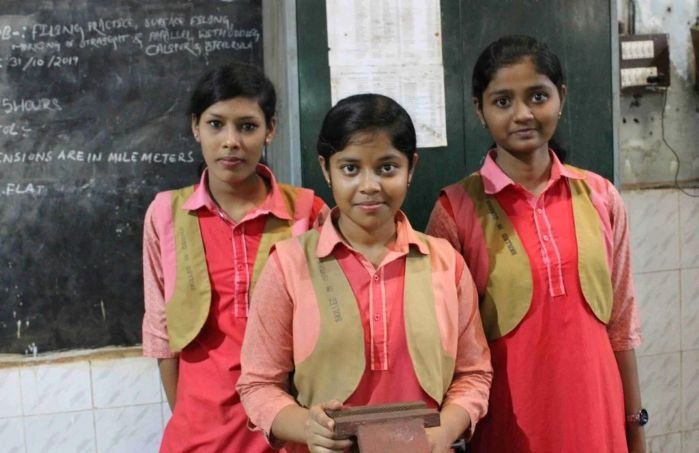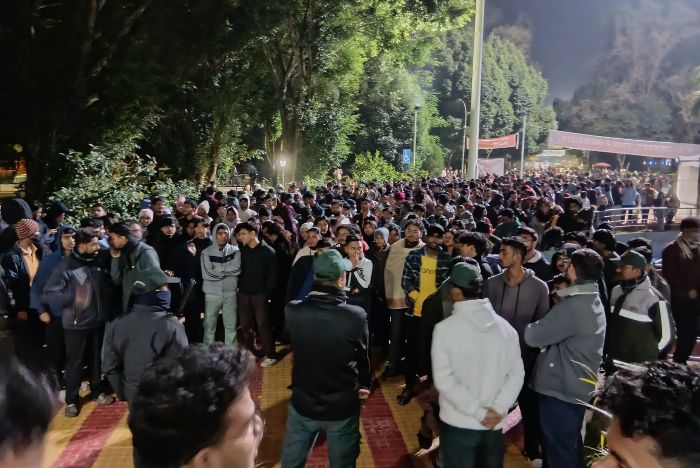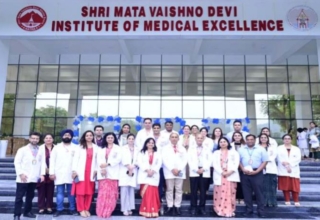
The Supreme Court on April 5 stayed an order of the Allahabad High Court that scrapped the Uttar Pradesh Board of Madarsa Education Act, 2004 by declaring it unconstitutional. The High Court order on March 22 said, “We hold that the Madarsa Act, 2004, is violative of the principle of Secularism, which is a part of the basic structure of the Constitution of India, violative of Articles 14, 21 and 21-A of the Constitution of India and violative of Section 22 of the University Grants Commission Act, 1956. Accordingly, the Madarsa Act, 2004 is declared unconstitutional. Further, we are not deciding the validity of Section 1(5) of the R.T.E. Act…”
Observing that the issues raised in the petitions merit closer reflection, a three-judge bench headed by Chief Justice D Y Chandrachud issued notices to the Centre, the Uttar Pradesh government and others on the pleas against the high court order. “State shall file counter on or before June 30, 2024. SLP be listed for final disposal in 2nd week of June 2024. The impugned order and judgement of the high court dated March 22, 2024, shall remain stayed,” the bench ordered.
Though the Supreme Court has said that it will hear and decide the case after close scrutiny, what is significant is that Allahabad HC observations have not been overturned. And, therefore, when the SC decides it eventually, it will ramifications for issues of regulations and administration of the minority educational institutions in a fundamental way.
Clearly, the more than 16500 recognized and another 9000 unrecognized madarsas in Uttar Pradesh, having a long history, legacy and important contribution towards religious education and catering to 17 lakh students besides employing hundreds of teachers, is an education sub-sector in itself. But like thousands of budget schools, these madarsas, apparently don’t stand legal scrutiny fully as has been demonstrated by the ‘stayed’ judgement of the Allahabad High Court.
It is interesting to note that Madarsa Education Act, 2004 has no precedence or equivalent nationally. In fact, it is only after 1969 that madarsas in the state of UP are being regulated and it culminated with the enactment of the Uttar Pradesh Board of Madarsa Education Act, 2004 and state aid for these settings. That was some years before the landmark Right to Education Act, 2009. Even though the RTE Act, 2009 does provide an escape under Section 1(5) saying “Nothing contained in this Act shall apply to Madrasas, Vedic Pathsalas and educational institutions primarily imparting religious instruction,” yet the Allahabad HC by not going into it has left it open for challenge. RTE activists citing a phenomenal growth of schools with minority tag post this legislation are of the view that the provision is being misused to deny 25% reservation for EWS under the RTE Act.
The Right to Education under Article 21A derives from right to life and is superior than Article providing for religious/cultural rights, the obligatory nature of RTE Act making it compulsory on the state to educate every child, continued education of children in ‘non-school’ settings will have to be justified by madrasa board in this case. Some legal experts say the progressive nature of RTE law should get precedence in the interest of children than anything else.
This is to apply that either madarsas have to be restructured and converted to proper schools while preserving their right to continue with age-appropriate religious education for those who want it and importantly get these must be aligned to all regulations and brought under proper school authority or continue as part-time coaching centres for religious education.
In this context a comment made by the Uttar Pradesh Chief Minister, Yogi Adityanath post HC judgment is also pertinent to quote here: “We will link the educational system of the state with the common educational system where no discrimination will take place on the basis of caste or religion, and we will provide an education in all these institutes that respects the country’s nationality as well as its heroes,” Adityanath had said. He also said that while the government tried to implement a madrasa modernisation scheme, it was found that a lot of fraudulent activities took place.
So, we have come to an important phase in the ‘Education for All journey’ and all eyes will surely be on the Supreme Court as it decides on the relevance of a legislation like Madarsa Education Act, 2004 . The very need of mainstreaming minority educational institutions needs to be also justified and a debate over their exemption from RTE Act concluded at the earliest.








